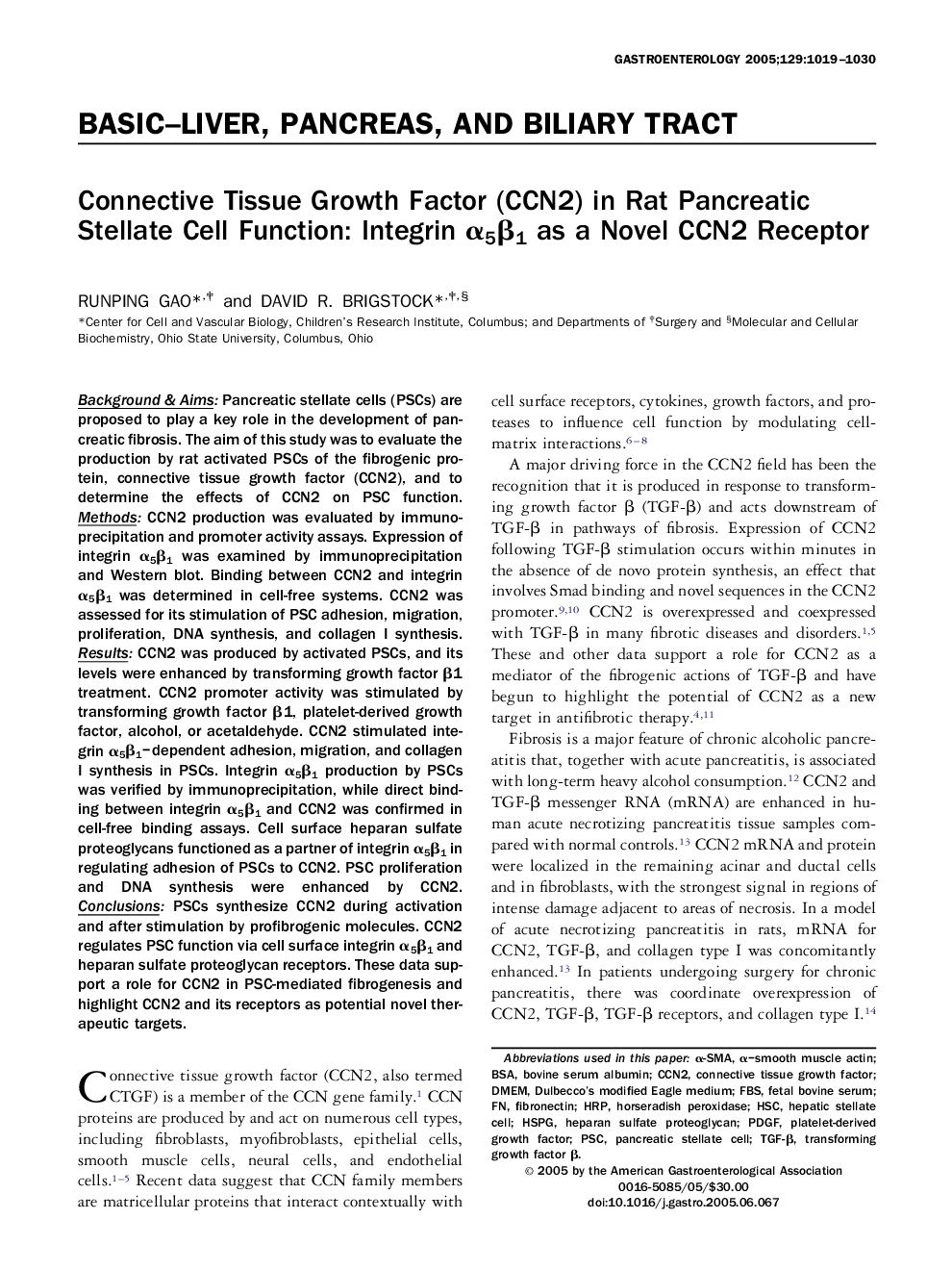| Article ID | Journal | Published Year | Pages | File Type |
|---|---|---|---|---|
| 9244222 | Gastroenterology | 2005 | 12 Pages |
Abstract
Background & Aims: Pancreatic stellate cells (PSCs) are proposed to play a key role in the development of pancreatic fibrosis. The aim of this study was to evaluate the production by rat activated PSCs of the fibrogenic protein, connective tissue growth factor (CCN2), and to determine the effects of CCN2 on PSC function. Methods: CCN2 production was evaluated by immunoprecipitation and promoter activity assays. Expression of integrin α5β1 was examined by immunoprecipitation and Western blot. Binding between CCN2 and integrin α5β1 was determined in cell-free systems. CCN2 was assessed for its stimulation of PSC adhesion, migration, proliferation, DNA synthesis, and collagen I synthesis. Results: CCN2 was produced by activated PSCs, and its levels were enhanced by transforming growth factor β1 treatment. CCN2 promoter activity was stimulated by transforming growth factor β1, platelet-derived growth factor, alcohol, or acetaldehyde. CCN2 stimulated integrin α5β1-dependent adhesion, migration, and collagen I synthesis in PSCs. Integrin α5β1 production by PSCs was verified by immunoprecipitation, while direct binding between integrin α5β1 and CCN2 was confirmed in cell-free binding assays. Cell surface heparan sulfate proteoglycans functioned as a partner of integrin α5β1 in regulating adhesion of PSCs to CCN2. PSC proliferation and DNA synthesis were enhanced by CCN2. Conclusions: PSCs synthesize CCN2 during activation and after stimulation by profibrogenic molecules. CCN2 regulates PSC function via cell surface integrin α5β1 and heparan sulfate proteoglycan receptors. These data support a role for CCN2 in PSC-mediated fibrogenesis and highlight CCN2 and its receptors as potential novel therapeutic targets.
Keywords
HSCTGF-βCCN2HSPGPDGFPSCHRPFBSDMEMα-SMABSADulbecco’s modified Eagle mediumbovine serum albuminα–smooth muscle actinTransforming growth factor βfetal bovine serumHepatic stellate cellpancreatic stellate cellConnective tissue growth factorplatelet-derived growth factorFibronectinHeparan sulfate proteoglycanHorseradish peroxidase
Related Topics
Health Sciences
Medicine and Dentistry
Gastroenterology
Authors
Runping Gao, David R. Brigstock,
